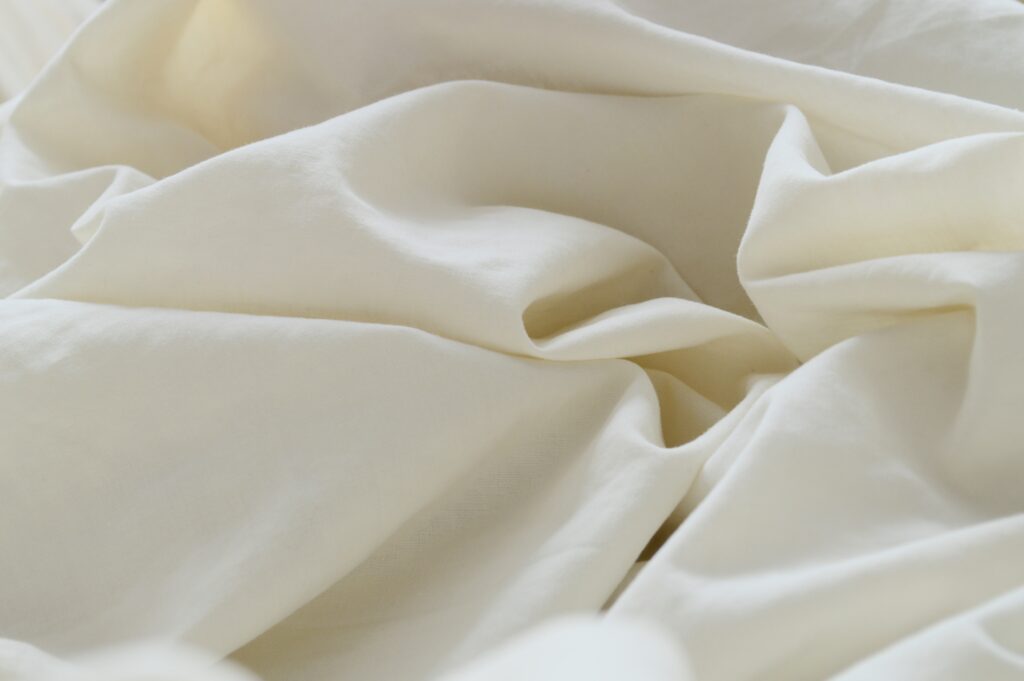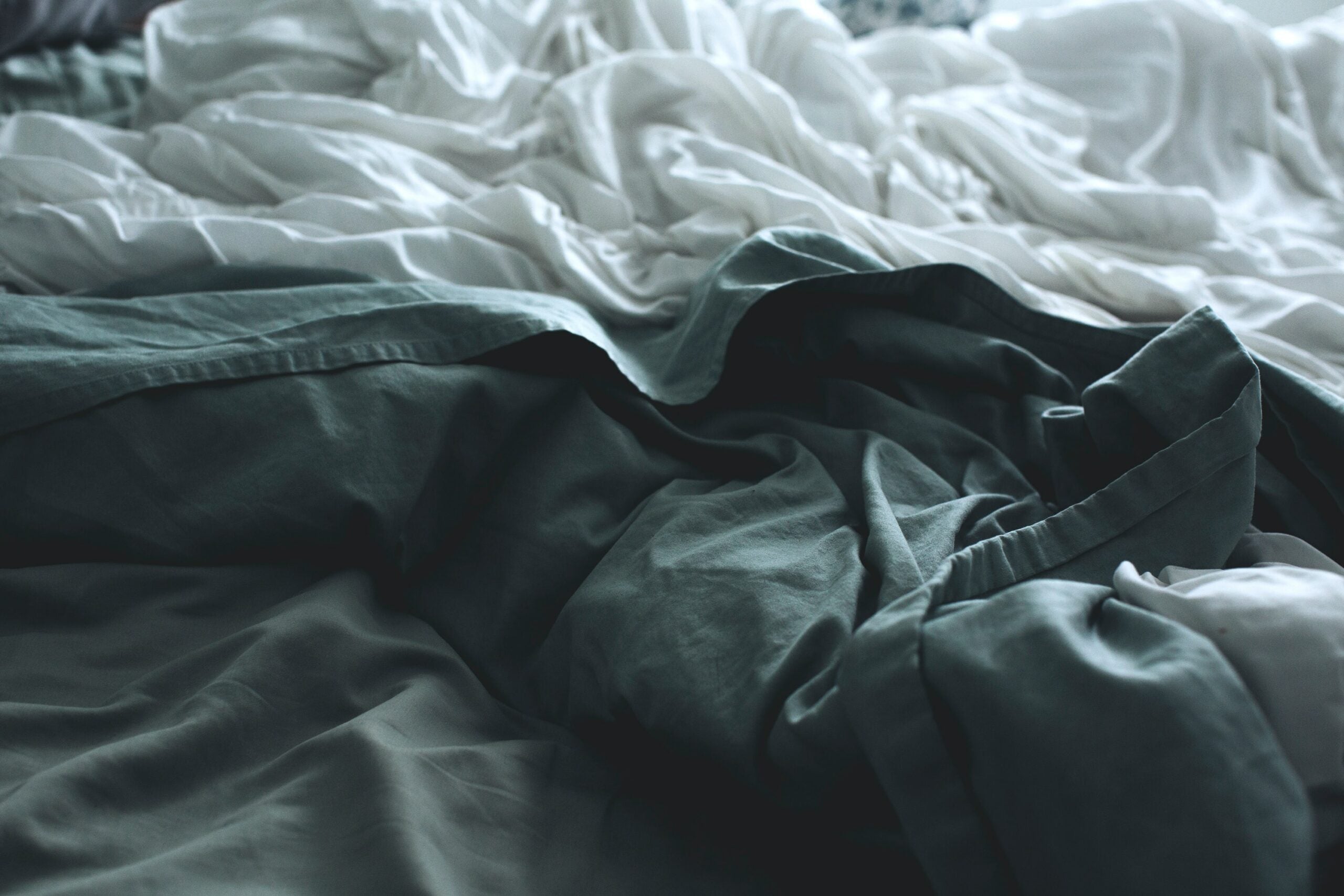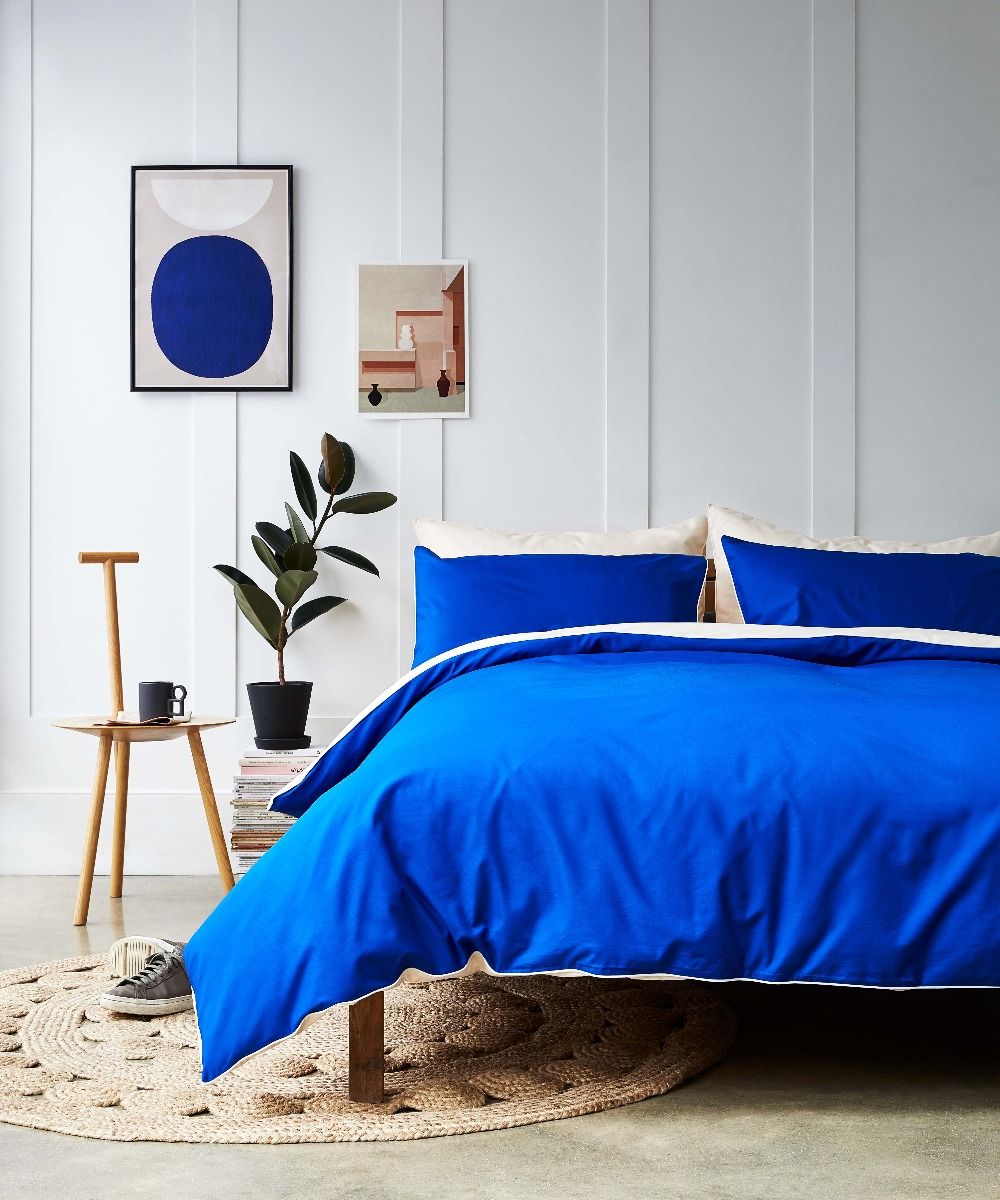Colour can have an impact on your overall mood, which can in turn affect your sleep. Certain colours, such as blue, have been linked to promoting serenity and relaxation, which helps you get in the mood for bed. Featuring calming colours in your room can help promote wellbeing and create a relaxing atmosphere to unwind, relax, and fall asleep in.
Your bedding is what you wrap yourself in and surround yourself with at bedtime. The quality of the material plays a large role in how well you are able to sleep. Ideally, your bedding should be comforting and promote relaxation. It has been thought that certain bedding colours can help, or more importantly, hinder your ability to sleep. If true, the wrong colour is something shoppers should be warned about before they buy their bedding.
Why Do People Think Bedding Colour Can Affect Sleep?
As discussed, colour can affect relaxation. This is because of its relationship with melatonin, a hormone your body releases at night to help you sleep. If you think about how we sleep, we typically sleep surrounded by darkness. If you then imagine the colour spectrum, light colours are on the opposite end of the spectrum from the dark.
Neuropsychologist Alexander Burgemeester believes that certain shades of bedding can “strain [your] eyes”, and interrupt the process of relaxing into sleep. Contrasting from the darkness of our rooms could be problematic.

What Colours Do They Believe Could Cause Problems?
Believe it or not, the traditional white bedding that so many of us have could be keeping us awake, according to some. “Stay away from whites and blues as it’s thought these colours might affect melatonin levels”, Sleep Expert Dorothy Chambers warns. This goes against our idea that calming colours like blue can promote sleep. To some experts like Chambers, these shades are not close enough to the dark shades of a bedroom at night time.
So, what colours should we opt for, according to this belief? The same experts recommend darker hues – greens, greys, black and grey – and dark blue only. This helps us feel like we are “cocooned” in our bedding, according to experts. Dorothy Chambers, who worked against the blues and whites of a daytime sky, recommends red, orange and black – colours closer to the sunset at the end of the day.
Is This True?
Above all, there has not been any conclusive scientific studies on how the colour of your bedding can affect sleep. These conclusions have mostly been drawn from colour theory and applied to bedding. This involves a lot of guesswork, and should not be seen as conclusive. Moreover, this expert advice should be seen as advice – not facts that are set in stone. You can try the recommended shades and see if you sleep better, but it is not necessarily essential.
In contrast to these ideas, other sleep experts have recommended white sheets as the go-to shade for a good night’s sleep. It is thought that our mental association of crisp, fluffy white bedding with hotel rooms and holidays helps us feel more relaxed and fall asleep faster. Our need to keep white sheets clean has a positive effect from sleeping with clean bedding.
In conclusion, the only way to know what bedding suits you is to try for yourself. There is not enough concrete evidence one way or another to say that a certain colour of bedding will help you sleep. If you suffer from sleep problems, swapping from your usual shades to another could help you. These findings are largely anecdotal, so trying new bedding to suit your individual needs is the way to go.







